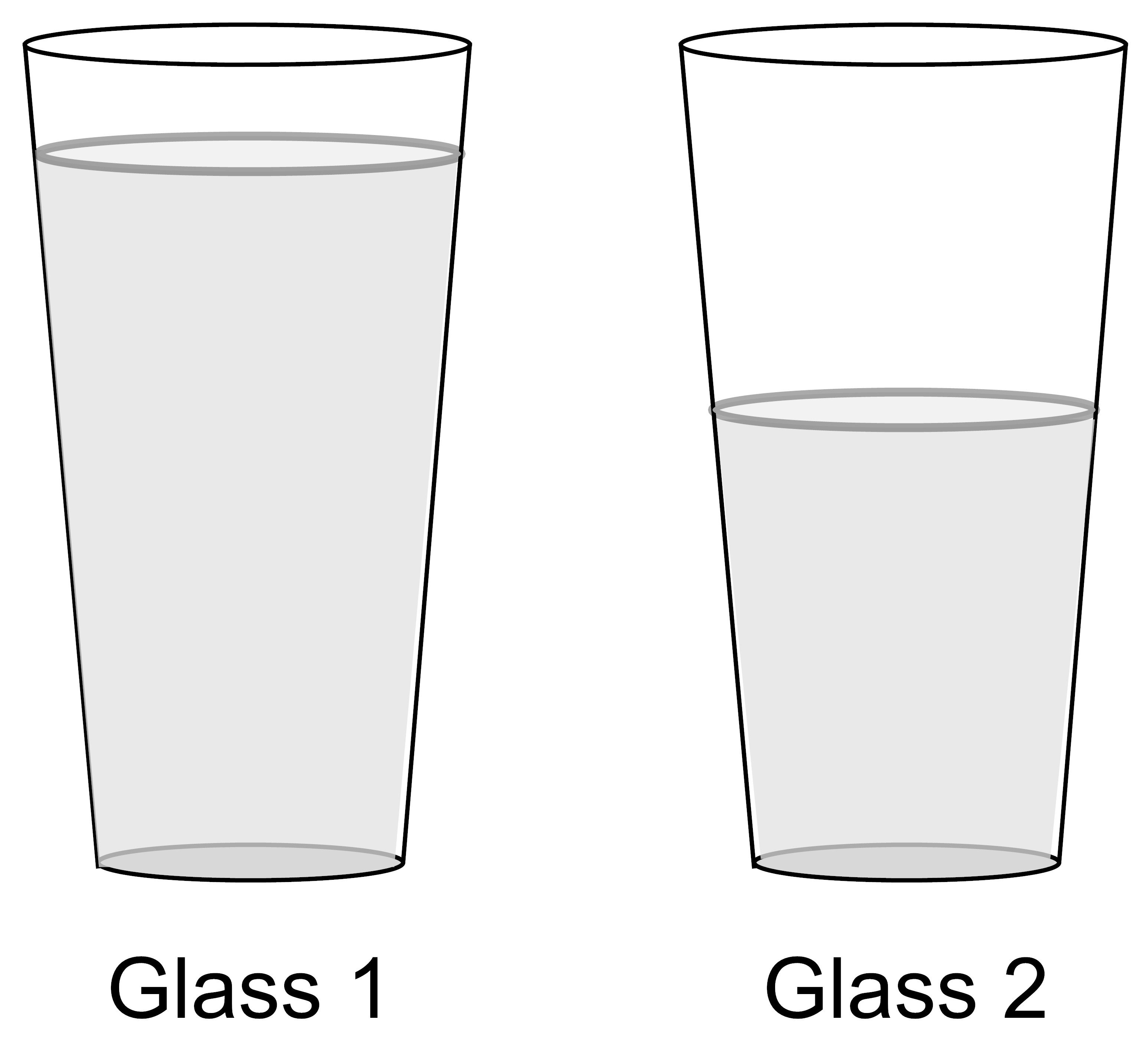Item EG084002: For two glasses containing water at the same temperature, the glass with more water has more thermal energy than the glass with less water.
A student has two identical glasses that have different amounts of water in them. Glass 1 has more water in it than Glass 2.

If the temperature of the water in the glasses is the same, how does the thermal energy of Glass 1 compare to the thermal energy of Glass 2?
- Glass 1 has more thermal energy than Glass 2.
- Glass 1 has less thermal energy than Glass 2.
- Glass 1 has the same amount of thermal energy as Glass 2.
- Neither glass of water has any thermal energy.
- Distribution of Responses

- Scale Score for Item Difficulty
(200[Easy]-800[Difficult]) - 503
- Students Responding Correctly
| Group | Correct | Total | Percent |
|---|---|---|---|
| Overall | 596 | 1462 | 41% |
| Grades | |||
| 4–5 | 154 | 312 | 49% |
| 6–8 | 231 | 598 | 39% |
| 9–12 | 211 | 552 | 38% |
| Gender | |||
| Male | 280 | 720 | 39% |
| Female | 305 | 710 | 43% |
| Primary Language | |||
| English | 527 | 1281 | 41% |
| Other | 58 | 148 | 39% |
- Disciplinary Core Ideas
- PS3.A Temperature is a measure of the average kinetic energy of particles of matter. The relationship between the temperature and the total energy of a system depends on the types, states, and amounts of matter present.
- NRC Framework
- Thermal energy is the random motion of particles (whether vibrations in solid matter or molecules or free motion in a gas)...

